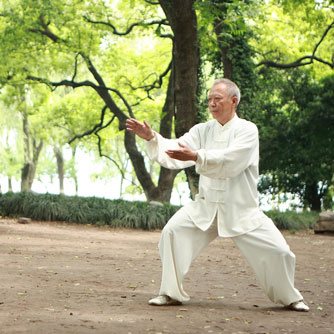Parkinson’s Disease patients who practice tai chi enjoy greater limits of stability and better sensory organization.
Parkinson’s Disease (PD) is a brain disorder that causes tremors and difficulty with movement and walking, and most commonly affects people over the age of 50. A slow, meditative, physical practice, tai chi originated as a martial art but is emerging as a intervention for a variety of disorders that impact balance and stability. Fuzhong Li, from the Oregon Research Institute (Oregon, USA), and colleagues studied a group of 130 Parkinson’s patients, median age 69 years, who were evenly randomized to a tai chi training intervention or a stretching exercise control group, which each met twice a week for 24 weeks. Measures of stability and sensory organization were taken at baseline and at 3 months and 6 months. The team found that the subjects who practiced tai chi scored better on these outcomes, as compared to controls. As well, modest gains were observed in lower-body strength among the participants in the tai chi training. Observing that that retention of participants in the tai chi intervention was high — roughly 85% — the intervention was effective at improving outcomes at low cost, requiring no equipment and with minimal supervision.
-
Li F, et al. “Tai chi and limits of stability in patients with Parkinson’s disease” [Abstract P04.031]. Presentation at American Academy of Neurology 2013 Annual Meeting, 21 March 2013.


